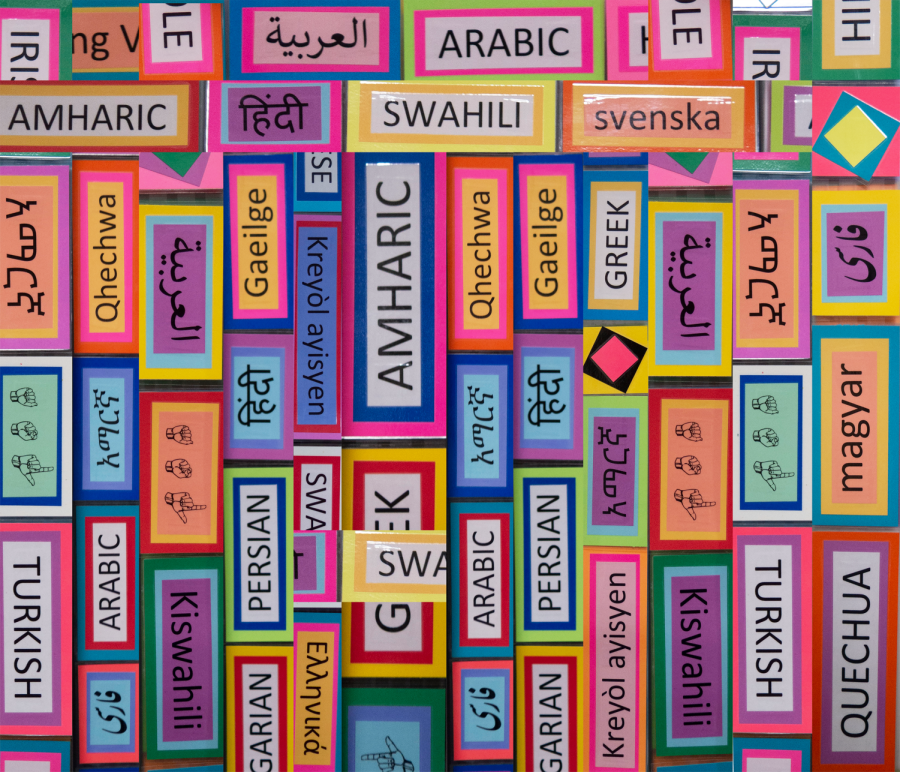Less-Commonly-Taught Languages Center offers diverse programs for students
September 30, 2022
A “less commonly taught” language doesn’t translate into an unimportant language, and Pitt’s Less-Commonly-Taught Languages Center is working daily to spread that message to students on campus.
LCTL, which is housed in the linguistics department, is home to 14 different languages, including Haitian Creole, Hindi, Irish, Persian/Farsi, Quechua, Swahili, Turkish and Swedish. Minors are offered in ten languages, and certificates are offered in two. Chris Matthews, a student worker in the center, said there is a widely spread misconception about the languages offered.
“People often think that a ‘less commonly taught’ language is one that is less commonly spoken, but that’s not the case,” Matthews, a junior linguistics and Italian double major and Quechua minor, said. “In fact, most of them are widely spoken and have vibrant cultures and traditions that are still being practiced to this day, and we want people to know about them.”
Marie Young, Pitt’s Irish professor, said many of the language programs also give students the ability to learn about other aspects of culture and life in these countries. Eight of the languages have additional three-credit courses which focus specifically on culture and traditions, and these courses are offered to all students even if they are not pursuing a LCTL minor.
“I introduced the culture classes as a way to expand students’ views of these countries outside of solely the language,” Young said. “You can feel and see the passion when students understand the historical significance a language has on society, and now there are culture courses offered for Irish, Greek, Hindi, Hungarian, Turkish, Quechua, Swahili and Swedish.”
Kayleigh Phillips, a sophomore environmental science major, is currently pursuing an Irish minor through LCTL that she said has given her “a new appreciation” for Irish history and culture overall.
“With Irish, as with so many ‘less commonly taught’ languages, people think that it’s a dead language,” Phillips said. “But through my classes, I’ve come to hold a deep respect for the people who know this isn’t the case and continue teaching it to new people.”
Most LCTL languages are taught by a single professor, which Young said only adds to the attention to detail and mentorship offered in the classes.
“Every professor is independent in their language, but we all work together in our department,” Young said. “We have a universal understanding of each other that makes the department a rewarding group to be part of. This means that students get almost consistent one-on-one attention with professors, which is usually unheard of at large universities.”
Matthews said the personal connections people make are part of why the center is so valuable.
“The professors in LCTL are especially motivated to help their students and connect them with any and every opportunity, because we all have the same goal — to get the word about these languages out into the broader Pitt community,” Matthews said. “They become advisors and part of your support system.”
Matthews encouraged new students to look into the programs.
“These languages aren’t just passion projects for a niche group of people — they’re still spoken, with people and traditions tied to the languages,” Matthews said. “Any student can enroll in the language courses without needing prerequisites, and taking one of the languages offered is a great opportunity for students to learn about a new culture and language that they otherwise wouldn’t think about.”
Phillips also said the community she’s found in LCTL is a major reason why she’s so involved in it now.
“I’ve been able to meet students of different ‘less commonly taught’ languages, and even though we’re learning totally different things, we connect over our understanding of the value in these types of languages,” Phillips said. “Irish and the LCTL overall have made a very large university feel more personal.”
According to Young, the center hosts programs throughout the year to introduce potential students to the language opportunities, and student interest has allowed study abroad programs to grow from the courses.
“We host mini lessons that are open to the Pitt community, where students can come listen to pieces of the languages we offer to give them a taste of what they’d be able to learn,” Young said. “And the study abroad programs were created because of student engagement and involvement.”
Young said the best development she’s seen in 17 years teaching Irish at Pitt is how students cultivate an appreciation for all less commonly taught languages.
“I’ve asked my Level Four students to write reflections about their time taking Irish, thinking they’d write about the grammar or vocabulary structures they’ve learned over the years,” Young said. “But they almost always talk about how taking Irish gave them a new level of respect for indigenous languages and cultures that have remained alive through centuries of erasure. Language is the last piece of that puzzle of understanding, and the LCTL hopes to keep spreading that message.”



